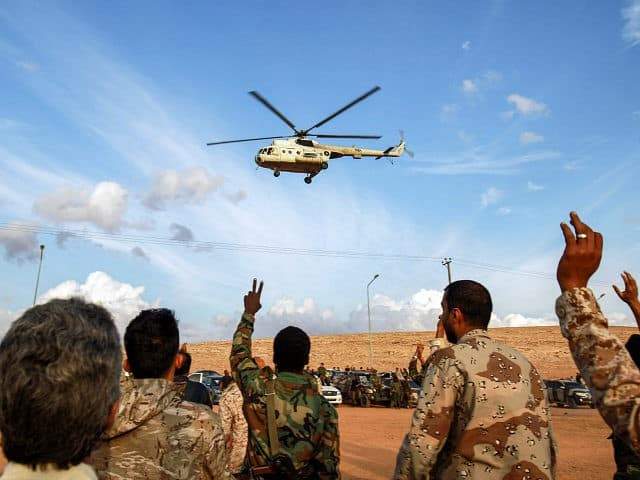Pentagon Report: UAE Is Backing Russian Mercenaries in Libya

The Pentagon released a report this month accusing the United Arab Emirates (UAE) of supporting Russian mercenaries fighting in Libya for rebel leader Khalifa Haftar and his Libyan National Army (LNA).
The UAE has provided “airstrike and logistics support” to the Wagner Group, a private Russian military contractor, and other forces aiding Haftar, according to a report released last week by United States Africa Command (AFRICOM), Foreign Policy reported on Tuesday. The assessment is based on observations made between July 1 and September 30, 2020.
“The DIA [Defence Intelligence Agency] assessed that the United Arab Emirates may provide some financing for the group’s operations,” AFRICOM’s counterterrorism report stated.
AFRICOM, which refers to the Wagner Group as “a Russian Ministry of Defense proxy,” alleges that by September 30, 2020, Wagner had sent 2,000 contractors to Libya to fight within the ranks of the LNA. The report further states that Wagner also shipped an additional 2,000 Syrian mercenaries to Libya for backup support.
AFRICOM’s assessment supports a report by Reuters in June in which the news agency alleged that the Wagner Group “accelerated” its recruitment of Syrian mercenaries to fight in Libya in May. According to Reuters, the Wagner Group hired the Syrian fighters under the supervision of the Russian Army. The report claimed that the Syrian fighters were trained at a base in Homs prior to deployment to Libya and were paid about $1,000 to $2,000 a month for their services. Russia’s alleged shipment of fighters into Libya would violate a U.N. arms embargo.
Haftar and his LNA forces launched a siege of Libya’s capital, Tripoli, in April 2019. Their goal was to depose Libya’s U.N.-backed Government of National Accord (GNA), established in the capital in 2015. Despite the Wagner Group’s alleged support of the LNA, Haftar’s forces failed to take Tripoli from the GNA after the internationally-backed government called in Turkish military assistance this summer.
Since the LNA’s failed Tripoli offensive, the Wagner Group’s forces have retreated to Libya’s coastal city of Sirte and the north-central Al-Jufra Air Base where they have been building defensive lines, according to AFRICOM’s report.
“Through a series of press releases over the last two quarters, USAFRICOM has provided overhead imagery that shows, in the command’s assessment, that Russia supplied Wagner Group forces operating in Libya with equipment such as armored vehicles, air defense systems, fighter aircraft, and other material,” the assessment stated.
Libya has endured seemingly unending turmoil since a 2011 NATO-backed revolt ousted dictator Muammar Qaddafi. After the dethronement, rival factions within Libya began vying for control of the country in a power struggle that continues today. Observers view Libya’s ongoing conflict as a proxy war between the LNA’s biggest backer, Russia, and Turkey, the GNA’s staunchest defender. Syria, Egypt, and the UAE join Russia in supporting Haftar and his LNA forces. Turkish-backed Syrian militias additionally support the U.N.-backed GNA.
Photo: ABDULLAH DOMA/AFP via Getty Images
Link: https://www.breitbart.com/africa/2020/12/01/pentagon-report-uae-is-backing-russian-mercenaries-in-libya/











